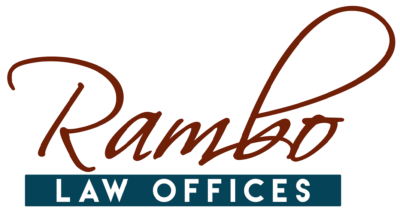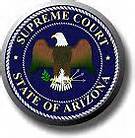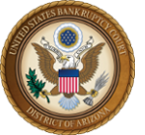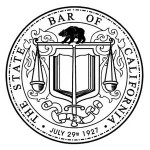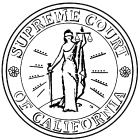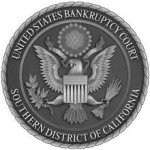The 7 Most Common Bankruptcy Mistakes
Request your free copy now!!
A Chapter 13 bankruptcy, often referred to as a reorganization, allows individuals with regular income to reorganize debts and make one monthly payment to the court for three to five years, based on an amount that you can afford to pay.
Chapter 13 often results in a reduction of the total amount of debt that must be repaid to creditors, and your liability for the remainder is discharged (i.e., eliminated). You might think of it as a debt settlement program you get to force your creditors into.
The discharge is usually granted upon completion of all Plan payments in three to five years. Most debts are dischargeable, with the exception of certain debts such as child support, student loans, some taxes, and debts incurred by fraud, etcetera.
Filing a Chapter 13 bankruptcy automatically stays (i.e., stops) your creditors from pursuing any collection activity against you, including wage garnishments, repossessions and foreclosures. Additionally, a Chapter 13 will stay actions against co-debtors when the debt is a consumer debt (not business debt).
Some of the great features of a Chapter 13 include:
- You have three to five years to get caught up on your delinquent car or mortgage payments.
- Second mortgages can often be stripped (i.e., eliminated).
- Auto loan balances can often be reduced to the fair market value of the car, and the interest rate can often be lowered. This is called a cram down.
- Co-debtors (i.e., other people who are liable for your debts) who are not filing bankruptcy can be protected from creditor harassment and collection by virtue of your bankruptcy.
- Your non-exempt assets don't need to be liquidated. See the bankruptcy Asset Protection page for more details about protecting assets.
- And more...
Individuals and sole proprietors are eligible for Chapter 13, but other business entities, such as corporations or partnerships, are not eligible for Chapter 13. See the business bankruptcy page for further information on business bankruptcies.
In order to file Chapter 13 bankruptcy and receive a discharge, you must meet the eligibility criteria. Eligibility is primarily based on your total amount of debt, your income and expenses, and whether or not you've ever filed bankruptcy before, and if so, how long ago. People who don't qualify for Chapter 7 will usually qualify for Chapter 13. And, sometimes a person who qualifies for Chapter 7 might actually prefer and choose the benefits of Chapter 13.
As of April 1, 2013, the maximum debt limits in Chapter 13 are: $383,175 for unsecured debts and $1,149,525 for secured debts.
Secured debts are those debts that have liens/collateral attached to them, such as auto loans or mortgage loans. Unsecured debts are those debts with no liens/collateral attached, such as credit cards. Some debts that were originally unsecured may have been converted to secured debts if the creditor has taken certain actions. For instance, the IRS might have recorded a lien against you for delinquent taxes. Or, a credit card company might have sued you and recorded the judgment against you.
There are other unique rules that apply in this regard as well. This can be a critical and complicated analysis when debts are close to the limits. If your debts exceed the debt limits then you do not qualify for Chapter 13 and you will either need to liquidate under a Chapter 7 or file a personal Chapter 11.
You must have regular income in order to file Chapter 13. Any source of income is acceptable, including disability, social security, or even gifts from family. The only requirement is that the income needs to be ongoing, and it needs to be enough to pay your monthly living expenses, plus some amount to the court.
You are eligible for a Chapter 13 discharge if it has been at least four years since you received a discharge in a prior Chapter 7 or Chapter 11 case, or at least two years since you received a discharge in a prior Chapter 13 case.
It is possible that the trustee and/or your creditors could object to something in your case, including your bankruptcy discharge itself. It is certainly possible to handle your bankruptcy case yourself; many people do. However, you need to understand that bankruptcy is a complicated legal proceeding, it is intensely rule driven, and it's pretty darn scary, so it's usually wise to have an attorney assist you.
For further information, see the Bankruptcy Process or the Chapter 7 Bankruptcy page.
A Chapter 13 bankruptcy, often referred to as a reorganization, allows individuals with regular income to reorganize debts and make one monthly payment to the court for three to five years, based on an amount that you can afford to pay.
Chapter 13 often results in a reduction of the total amount of debt that must be repaid to creditors, and your liability for the remainder is discharged (i.e., eliminated). You might think of it as a debt settlement program you get to force your creditors into.
The discharge is usually granted upon completion of all Plan payments in three to five years. Most debts are dischargeable, with the exception of certain debts such as child support, student loans, some taxes, and debts incurred by fraud, etcetera.
Filing a Chapter 13 bankruptcy automatically stays (i.e., stops) your creditors from pursuing any collection activity against you, including wage garnishments, repossessions and foreclosures. Additionally, a Chapter 13 will stay actions against co-debtors when the debt is a consumer debt (not business debt).
Some of the great features of a Chapter 13 include:
-You have three to five years to get caught up on your delinquent car or mortgage payments.
-Second mortgages can often be stripped (i.e., eliminated).
-Auto loan balances can often be reduced to the fair market value of the car, and the interest rate can often be lowered. This is called a cram down.
-Co-debtors (i.e., other people who are liable for your debts) who are not filing bankruptcy can be protected from creditor harassment and collection by virtue of your bankruptcy.
-Your non-exempt assets don't need to be liquidated. See the bankruptcy Asset Protection page for more details about protecting assets.
-And more...
Individuals and sole proprietors are eligible for Chapter 13, but other business entities, such as corporations or partnerships, are not eligible for Chapter 13. See the business bankruptcy page for further information on business bankruptcies.
In order to file Chapter 13 bankruptcy and receive a discharge, you must meet the eligibility criteria. Eligibility is primarily based on your total amount of debt, your income and expenses, and whether or not you've ever filed bankruptcy before, and if so, how long ago. People who don't qualify for Chapter 7 will usually qualify for Chapter 13. And, sometimes a person who qualifies for Chapter 7 might actually prefer and choose the benefits of Chapter 13.
As of April 1, 2016, the maximum debt limits in Chapter 13 are: $394,725 for unsecured debts and $1,184,200 for secured debts.
Secured debts are those debts that have liens/collateral attached to them, such as auto loans or mortgage loans. Unsecured debts are those debts with no liens/collateral attached, such as credit cards. Some debts that were originally unsecured may have been converted to secured debts if the creditor has taken certain actions. For instance, the IRS might have recorded a lien against you for delinquent taxes. Or, a credit card company might have sued you and recorded the judgment against you.
There are other unique rules that apply in this regard as well. This can be a critical and complicated analysis when debts are close to the limits. If your debts exceed the debt limits then you do not qualify for Chapter 13 and you will either need to liquidate under a Chapter 7 or file a personal Chapter 11.
You must have regular income in order to file Chapter 13. Any source of income is acceptable, including disability, social security, or even gifts from family. The only requirement is that the income needs to be ongoing, and it needs to be enough to pay your monthly living expenses, plus some amount to the court.
You are eligible for a Chapter 13 discharge if it has been at least four years since you received a discharge in a prior Chapter 7 or Chapter 11 case, or at least two years since you received a discharge in a prior Chapter 13 case.
It is possible that the trustee and/or your creditors could object to something in your case, including your bankruptcy discharge itself. It is certainly possible to handle your bankruptcy case yourself; many people do. However, you need to understand that bankruptcy is a complicated legal proceeding, it is intensely rule driven, and it's pretty darn scary, so it's usually wise to have an attorney assist you.
For further information, see the Bankruptcy Process or the Chapter 7 Bankruptcy page.
We are Proud to be a Designated Debt Relief Agency under Federal Law and We Provide Legal Assistance to Consumers Seeking Relief Under the Bankruptcy Code.
The information contained herein is for informational purposes only. It is not intended to constitute legal advice or to create an attorney-client relationship. We do not make any recommendations or endorsement as to any legal issue or procedure discussed. The nature of any particular legal issue should be considered on a case-by-case basis, and the information described herein is not necessarily a guide to your individual circumstances. It is advised that you seek independent legal advice to determine your particular legal needs.
Copyright © 2003 by Rambo Law Offices
